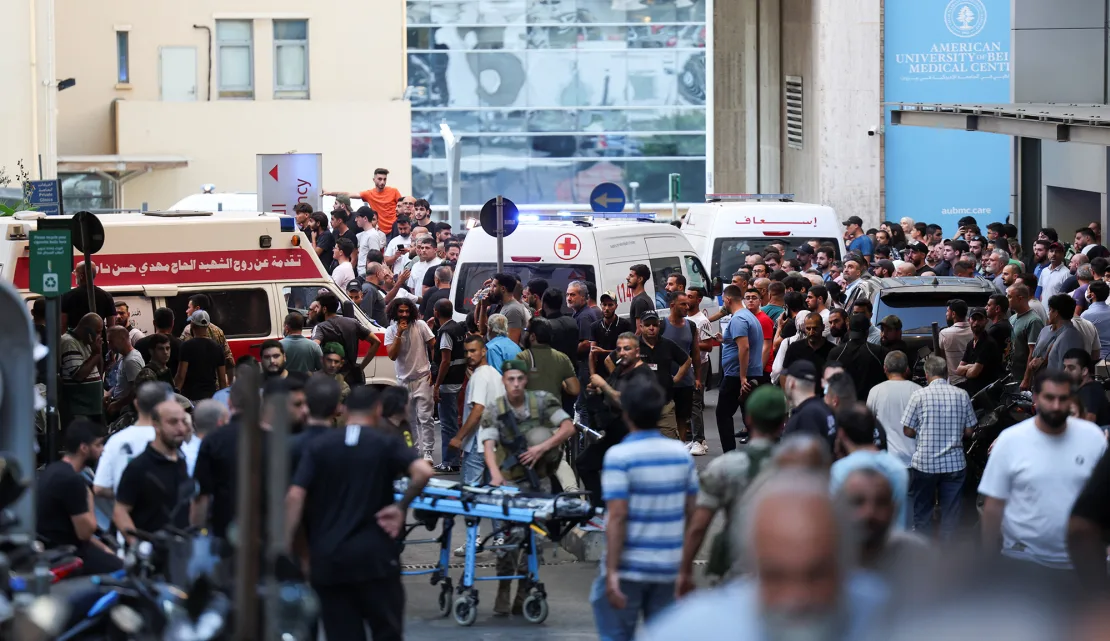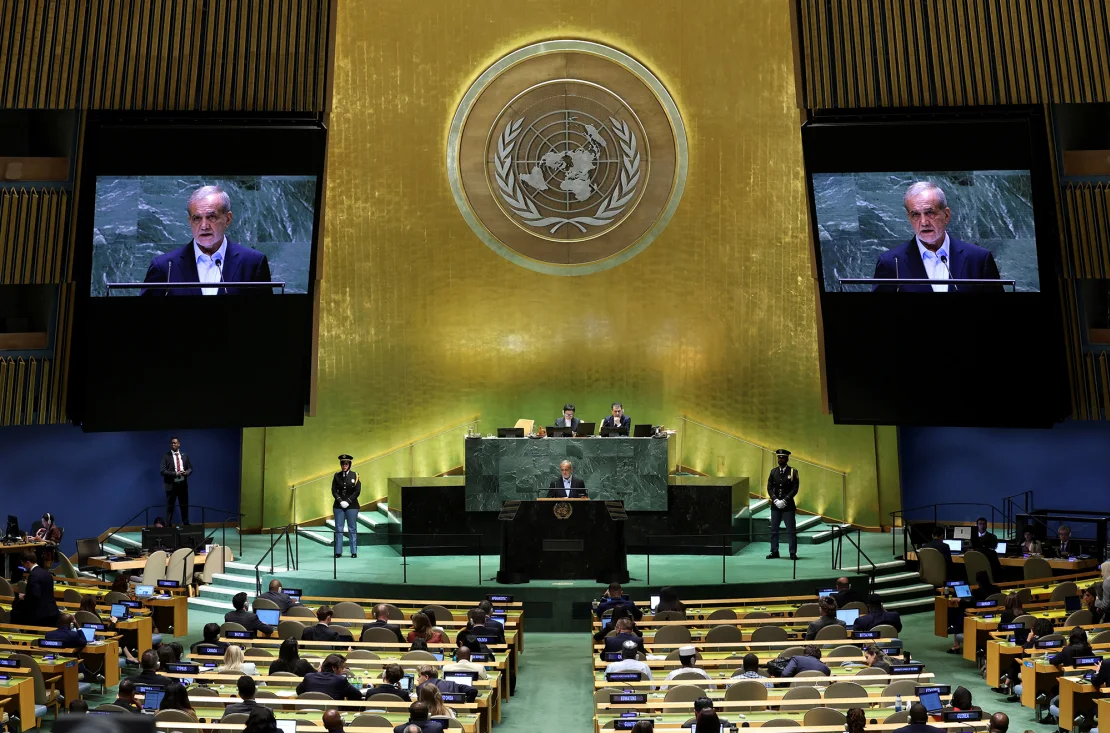Israel’s assassination of Hezbollah leader Hassan Nasrallah has dealt a significant blow to the militant group, marking its most serious setback since its formation. This attack on Friday has not only shaken Hezbollah but also prompted concerns about how its Iranian backers will respond. Iran has warned that Israel’s actions represent a dangerous escalation, potentially altering the rules of engagement in the ongoing conflict.
The Israeli offensive intensified dramatically after Israel expanded its Gaza war efforts to include Hezbollah’s northern front on September 17. This was followed by a series of coordinated attacks on the group’s communication systems, crippling Hezbollah’s ability to operate effectively.
A subsequent wave of airstrikes resulted in the deaths of several high-ranking Hezbollah commanders, leading to the highest casualty numbers in Lebanon in nearly two decades. Nasrallah’s assassination served as the culmination of these aggressive actions.
Hezbollah’s military structure has suffered considerable damage as a result of Israel’s campaign. Israeli military officials claim that much of Hezbollah’s command has been dismantled, with many senior leaders killed and critical military capabilities severely compromised.
Hanin Ghaddar, a senior fellow at the Washington Institute, asserts that this represents Hezbollah’s worst military losses since its inception. Nonetheless, the group still possesses advanced missile capabilities, many of which remain unutilized.
Experts believe that while Nasrallah’s death represents a significant loss for Hezbollah, the organization still retains the capacity to operate. Amal Saad, a specialist on Hezbollah, points out that the group’s resilience is integral to its structure.

Israel’s Assassination of Nasrallah Shakes Hezbollah, Raises Risk of Iranian Escalation Amid Intensifying Conflict
Historically, Hezbollah has been able to withstand substantial challenges and retaliate, as demonstrated by its recent strikes on northern Israel. The group’s continued operational capacity is illustrated by the recent firing of a ballistic missile near Tel Aviv.
Although Nasrallah’s assassination is a heavy blow, it may not incapacitate Hezbollah. His leadership was closely linked to significant achievements, such as the 2000 Israeli withdrawal from southern Lebanon and the 2006 Lebanon War.
However, Hezbollah’s organizational design is intended to endure beyond the loss of any single leader. The group’s ability to function effectively without Nasrallah remains uncertain, but its history suggests that it can adapt and respond.
The question of Iran’s involvement in the conflict is critical moving forward. Iran has long supported Hezbollah as a central element of its “Axis of Resistance,” which includes various militant groups across the region.
While Iran has historically provided Hezbollah with military and financial support, the potential for direct intervention in the current conflict poses significant risks, including the likelihood of further escalation that could involve the United States and other regional players.
Currently, Iran appears to be avoiding direct military involvement, instead opting to provide logistical and operational assistance to Hezbollah. Farzin Nadimi, a senior fellow at the Washington Institute, posits that Iran is likely helping Hezbollah reconstruct its command structure.
However, if Hezbollah’s situation worsens, Iran may consider more assertive responses, potentially involving missile and drone strikes against Israeli targets.
Iran also faces internal pressures that complicate its foreign policy decisions. President Masoud Pezeshkian, who emphasizes the importance of improving relations with the West, is confronted with the challenge of balancing the desires of reformist factions advocating for diplomacy against hardline elements that push for a more forceful response to Israeli actions.
Pezeshkian’s recent statements at the United Nations, where he expressed a willingness to engage with Western nations and suggested mutual disarmament, have drawn criticism from hardliners and raised concerns about Iran’s position.
Tehran is also cautious about being drawn into what it perceives as an Israeli trap aimed at expanding the conflict. Iranian officials have highlighted the need for restraint, with Vice President Javad Zarif stressing the importance of not escalating the situation further. However, if Hezbollah continues to sustain losses, Iran may feel compelled to reevaluate its approach, particularly if it risks losing a vital ally in the region.
The ongoing conflict between Israel and Hezbollah carries broader implications for regional stability. Although Israel’s military strikes have significantly weakened Hezbollah, the group’s demonstrated resilience and Iran’s interest in its survival suggest that tensions may continue to rise.
Should Hezbollah manage to endure Israeli attacks, the likelihood of Iranian intervention increases, potentially leading the region into a more dangerous and unpredictable phase of conflict.











































